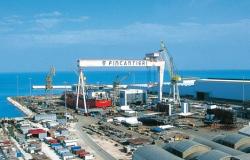The G7 stage opens in Puglia after the roller coaster of the European vote. Prime Minister Meloni arrives on the strength of popular confirmation, despite the record low turnout and a drop in absolute votes compared to 2022. The G7 will offer a first informal space for discussion between the leaders of the major European countries, together with President Von der Leyen, to evaluate possible new geometries at the top of the European institutions.
Outside of European dynamics, there is a G7 to deal with with leaders who are preparing for their elections. First in the United Kingdom, then in the United States and followed in 2025 in Canada. Fresh from confirmation, unlike Macron and Scholz, Meloni therefore stands out as a figure with more wind in her sails even in the international context. Will he therefore be able to propose and extract new commitments or will we witness a simple mosaic of commitments already made in recent months in ministerial meetings, reducing the Summit to a catwalk and a wasted opportunity for Italy?
It is good to remember that the G7 is still responsible for 25% of global emissions, 27% of fossil fuel production, over 30% of oil and gas consumption, and over 40% of global economic value production. And which controls a large part of global financial flows. The G7 still weighs on the fate of the planet, despite the shift of the geopolitical center of gravity increasingly to the east and to the hemisphere of the global south.
The leaders will certainly discuss support for Ukraine and how to finance it and continue discussions on American President Biden’s proposal for a ceasefire between Israel and Hamas, which in recent days has gathered supportunanimous support from the G7 countries. Then there will be China as the elephant in the room towards which the G7 will have to find a balance between security and economic cooperation. And also the big question of artificial intelligence.
In this context, it is natural to ask what are the margins for discussion on the climate agenda, much contested in the electoral campaign, and on development?
Much of the relationship with the rest of the world and the relaunch or otherwise of international cooperation will depend on these issues. Leaders will be able to reaffirm key commitments on climate, energy and finance Turin And Stresa? An affirmative answer is also a positive answer to the question about the future of the Green Deal. In fact, in Turin, European countries, including Italy, agreed on transition plans and energy-industrial priorities that are entirely in line with the priorities of the European Green Deal.
The Italian G7 represents the first point of contact between the commitments of the COP28 in Dubai and COP29 in Baku and COP30 in Brazil in 2025. In Puglia it will be necessary to lay the foundations for the creation of a new global financial regime and for the development of decarbonisation plans aligned with the 1.5 °C objective, capable to unlock public and private investments.
For the G7 countries, this translates primarily into the exit from coal for electricity production by 2035 and the elimination of fossil fuel subsidies by 2025. As well as supporting the Brazilian Presidency of the G20 to progress in architectural reform international financial institution.
Advances on the climate agenda by the G7 also mean: commitment to triple national renewable energy capacity by 2030, eliminate public support for investments in the gas sector and highlight the futility of new investments in oil production and exploration it’s gas.
The G7 can also pave the way for ambitious new financial targets to be discussed at COP29 to substantially strengthen development and climate finance. The year of the Italian Presidency of the G7 also coincides with the twenty-first refinancing of the International Development Association of the World Bank (IDA). The G7 should take the opportunity to agree on an ambitious refinancing, i.e. exceeding the critical threshold of 100 billion dollars, as proposed by the World Bank, or the 120 billion dollars expected by African leaders, as expressed recently by the President of Kenya Ruto and from former President of Malawi Joyce Banda. And as also requested also by many realities of Italian civil society representing thousands of people and organizations engaged in cooperation and development.
The reflection on IDA goes hand in hand with the discussions on the increasingly pressing issue of debt, which for Italy should take on a central character especially in the relationship with Africa given the high debt fragility of many countries. The G7 should therefore focus on reform proposals of the international financial architecture that help resolve debt distress and access low-cost finance to create opportunities or diversify fossil fuel-dependent economies. For Italy this also means overcoming traditional approaches linked to concepts on energy security and the role of hydrocarbons which currently characterize the Italian presence in Africa.
The G7 will also discuss ainitiative on food systems which aims to jointly address the climate and food crises to make agriculture more resilient to climate change. Initiative which is most likely linked to the initiatives contained in Mattei Plan and to our country’s relations in the Mediterranean and on the African continent.
At stake at the G7 is therefore not only the immediate future but also the immediate one. Will leaders be able to emerge from the very risky myopia of the present to ensure a longer-term vision that lays the foundations for renewed collaboration between nations and lasting peace between peoples?





